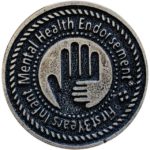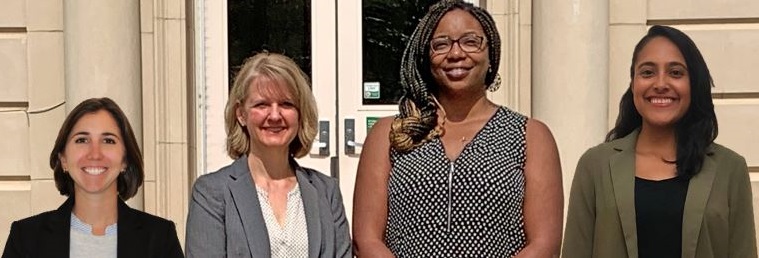Abstract
Service to young children and families has been identified as both a highly rewarding and intensely stressful process. The Infant Mental Health Endorsement (IMH-E®) system was created to acknowledge and support professional development among individuals incorporating best practices related to Infant Mental Health into their work with young children and families. In an effort to contribute to the evidence base regarding Endorsement® as a tool for workforce development, this discussion focuses on perceptions of the IMH-E® credential among early childhood intervention professionals who were offered scholarships to pursue Endorsement® as part of a larger study of reflective supervision/consultation. For the present analysis, participants (N = 31) responded to a semi-structured interview questionnaire where they reported on their perceptions of the Infant Mental Health Endorsement credential (IMH-E®). Inductive analysis techniques were used to identify themes that arose from the data. Relationships between themes were discovered through axial coding. Four key themes related to Endorsement® were identified: service to families, development of self, development of team/staff, advancing the field/validating the work. These findings hold promise for increasing awareness of the diverse set of perceived benefits associated with the IMH-E® credential. Implications for policy and practice are discussed.
Key words: endorsement, professional development, strengths-based approach, credential, early childhood intervention, IMH-E®

Exploring Professionals’ Perceptions of the IMH-E® Credential
Providing services to young children and families has been identified as both a highly rewarding and intensely stressful process. Issues related to turnover, burnout, compassion fatigue, hopelessness, well-being and efficacy (e.g., Faulkner, Gerstenblatt, Lee, Vallejo, & Travis, 2016; Salloum, Kondrat, Johnco, & Olson, 2015; Salomonsson, 2019; Shea, Goldberg, & Weatherston, 2016) as well as loss in relational capacity (O’Rourke, 2011), have brought reflective supervision/consultation to the forefront as an evidence-based practice for supporting emotional well-being and effective service delivery among professionals who care for very young children and their families (e.g., O’Rourke, 2011; Weatherston, Weigand, & Weigand, 2010). Beyond the provision of reflective supervision/consultation however, is a critical need to “upskill” (Priddis, Matacz, & Weatherston, 2015) and support workforce development (Funk et al. 2017) and “elevate” the field (Fyall Cardenas & Tanco, 2016) of Infant Mental Health.
The Infant Mental Health Endorsement (IMH-E®) system was created to acknowledge and support professional development among individuals incorporating “Culturally Sensitive, Relationship-Focused Practice Promoting Infant and Early Childhood Mental Health” (Alliance for the Advancement of Infant Mental Health, n.d.-a) into their work with young children and families. The IMH-E® system supports workforce development and excellence in the field of infant Mental Health (e.g., Funk et al., 2017; Fyall Cardenas & Tanco; 2016; Weatherston, Kaplan-Estrin, & Goldberg, 2009) through a four pathway-approach that reflects advanced education, work experience, in-service training, and knowledge of infant Mental Health (Alliance for the Advancement of Infant Mental Health, n.d.-b). Depending on individual competencies, professionals may apply for endorsement as Infant Family Associates, Infant Family Specialists, Infant Mental Health Specialists, or Infant Mental Health Mentors. According to the Alliance for the Advancement of Infant Mental Health (n.d.-a), over 2000 professionals have earned the IMH-E® credential.
Why Explore Perceptions of Endorsement®?
When our research-practice team began our evaluation of self-efficacy, stress, and coping among early childhood intervention professionals receiving regular reflective supervision (see Frosch, Mitchell, Hardgraves, & Funk, 2019; Frosch, Varwani, Mitchell, Caraccioli, & Willoughby, 2018), we did not set out to report on participants’ perceptions of the Endorsement® system. However, in exchange for participation in the short-term, longitudinal project, professionals were offered scholarships to pursue Endorsement® (approximately 90% of participants chose to do so). To us, this suggested that participants viewed Endorsement® as a process worthy of their attention. Moreover, in reviewing participants’ responses to the study’s semi-structured interview questionnaire, we became interested in the range of benefits that early childhood intervention professionals associated with the pursuit of Endorsement®. Hence, our team decided to pursue a deeper exploration of perceptions of the Endorsement® credential.
The purpose of this Perspectives in Infant Mental Health discussion is to describe our qualitative findings regarding early childhood intervention professionals’ perceptions of the IMH-E® system. We share these findings here in an effort to expand our understanding of the perceived benefits and possible motivating factors surrounding professionals’ pursuit of Endorsement®, and to inform future efforts aimed at increasing awareness and use of Endorsement® as a professional credentialing system.
Our Approach
Participants were primarily early childhood intervention professionals serving children aged birth to three through Part C of the Individuals with Disabilities Education Act (IDEA). In addition, a small number of infant mortality prevention specialists were included in the sample. Of the 40 early childhood intervention professionals recruited for the original project, 31 responded to a semi-structured interview questionnaire where they reported on their professional experiences related to efficacy, stress, and coping. As part of this measure, perceptions of the Endorsed Infant Mental Health credential (IMH-E®) were assessed via one question that invited participants to “Describe briefly why you chose to pursue Endorsement.” Participants’ responses were coded independently by three coders. Two of the author/coders are faculty members at a large public university. The first author/coder is also an endorsed Infant Mental Health Mentor (IMH-E®). The second author/coder has expertise in qualitative methodology and trained as a marriage and family therapist. She is also a qualified administrator of the Intercultural Development Inventory (IDI®). The third coder is a doctoral student. The coding team met regularly to discuss all codes until 100% agreement was achieved.
As the goal of qualitative methodology is to generate hypotheses rather than test them (Auerbach & Silverstein, 2003), we sought to identify overall themes in participant’s perceptions of the IMH-E® credential. Accordingly, inductive analysis techniques (Patton, 1990; 2002; Southern & Devlin, 2010) were used to identify themes that arose from the data and relationships between themes were discovered through axial coding (Corbin & Strauss, 2008). Four key themes related to Endorsement® were identified: (1) service to families, (2) development of self, (3) development of team/staff, and (4) advancing the field/validating the work.
Our Findings: Qualitative Themes Associated with Seeking Endorsement® as an Infant Mental Health Professional
Endorsement® for Infant Mental Health has been described as “an internationally recognized credential that supports and recognizes the development and proficiency of professionals who work with or on behalf of infants, toddlers, and their families” (First3Years, n.d.). Accordingly, we sought to understand why the credential was valuable to individual professionals. While there were some participants (N=7) who were not initially aware of Endorsement® as a credential or only participated in the process because of program requirement, four subcategories were identified as themes related to the value of Endorsement®: service to families, development of self, development of team/staff, and advancing the field/validating the work.
Service to Families
The service to families category describes how practitioners identify the IMH-E® credential as a means to support their ability to provide effective service to children and their families. Skills-based service and emotion or connection-based services emerged as sub-categories. Skills-based services included gaining knowledge to assist with the functions of the job or providing tools directly to families to support their development and success. For example, many participants noted they wanted to use the Endorsement® to “better serve families that I work with,” “to serve families more thoroughly,” “to learn better stress management for myself and to be able to utilize the strategies with families,” and “to provide families challenged with emotional and physical difficulties the necessary tools to attain success.” Emotion/connection-based service to families centered on the practitioner’s desire to use Endorsement® as a means to elevate family and community members. One practitioner noted that her goal was “to better help families and the communities working with infants and toddlers” while another noted she is “passionate about the job I do and the families we serve.”
Development of Self
Development of self is the second category that emerged related to seeking Endorsement® for Infant Mental Health. Here, practitioners discussed how becoming endorsed would promote their own development as a practitioner serving families through various forms of knowledge, skills, and professional development. Subcategories include job-related skills and education as well as personal well-being and rewards. Job related skills/education was evidenced by practitioners who “would like to be better prepared to manage care to families. To improve ability to notice, identify needs” and “want to gain skills to be a better supervisor.” Other practitioners noted a desire “to be better educated in my field of MCH,” “to better learn how to help families with emotional support and managing behavior,” and to “advance my expertise. Learn and recognize strengths, & weaknesses of self and families.” Practitioners also noted the importance of reflective supervision in their work and how Endorsement® would benefit their engagement with reflective supervision. One participant stated seeking Endorsement® would “improve my reflective supervision skills to increase my staff’s capacity/self-awareness,” while another felt Endorsement® would help her “learn how to be more self reflective in situations and not feel like I have to have the answer to everything.”
The personal well-being category reflected practitioners’ desire to use Endorsement® for rewarding self-fulfillment. “I have often been told that maybe I ‘missed my calling’ by not becoming an IMH professional. It’s something I’ve tried to do all along & aspire to be more of” said one practitioner, while another looked forward to using Endorsement® to “learn better stress management for myself and to be able to utilize the strategies with families.”
Development of Team/Staff
In addition to wanting to develop their own skills, participants expressed a desire to utilize Endorsement® to encourage further development in their team and staff members through the subcategories of job-related skills and elevating/supporting others. Job-related skills included the desire “to manage staff better,” “increase my staffs [sic] capacity/self-awareness,” and “allow me to better serve… my team.” The sub-category of elevating/supporting others was reflected by statements such as “I want to be able to support my staff and raise their confidence level by helping them problem solve…I want them to enjoy what they do and build their sense of self- worth. In addition,“as I have learned about being an endorsed IMH, I see the benefit of it both in working with families and also in being a supervisor to help my staff be able to problem solve and understand their feelings toward other staff and families.” “Providing feedback,” “maintain staff and not lose them,” and “better serve my staff” are quotes that further reflect the theme of elevating/supporting staff.
Advancing the Field/Validating the Work
An additional category of seeking Endorsement® centered on the idea of advancing the field of family services and elevating the work of practitioners to be accepted. Participants wanted to “be recognized,” “to be an advocate in my field,” and “to validate the criticalness of the infant-family professional role and identifies the work of the EC professional as imperative.”
Summary and Future Directions
Consistent with the Alliance for the Advancement of Infant Mental Health’s goal in establishing the IMH-E® system, the early childhood intervention professionals we surveyed perceived the Endorsement® process as a way to enhance the service they provide to families, to support their own professional development of self, to promote the development of team/staff members, and advance the field and validate the work they do as infant-family professionals. Thus, these findings add to the growing evidence base which recognizes Endorsement® as a system for supporting workforce development, including professional competency and provision of high-quality services to young children and families (e.g., Carlson et al., 2012; Priddis et al., 2015).
In light of these findings, and the extant literature on workforce development, we posit that professionals do perceive value in the Endorsement® system and that, through raising awareness of Endorsement® in the field, children and families may be the beneficiaries of “Culturally Sensitive, Relationship-Focused Practice Promoting Infant & Early Childhood Mental Health” (Alliance for the Advancement of Infant Mental Health, n.d.-a). Because several categories or pathways toward Endorsement® require engagement in reflective supervision, the combination of credentialing and participation in reflective supervision may build individuals’ relational capacity (release of defensive patterns, building of supportive relationships, e.g., Salomonsson, 2019) as well as promote professional development via increased self-efficacy and practice implementation.
Yet clearly, more work needs to be done. In the United States, the infant and early childhood field is rife with low wages and a lack of perceived value for services rendered and the professionals themselves. At the individual level, this combination of factors may affect one’s motivation and ability to pursue IMH Endorsement®. At a systemic level, this combination of factors may affect the lack of progress of the IMH field overall and the resources necessary to support the field overall. Identifying incentives and barriers to overcome these obstacles is critical to building a comprehensive, cross-sector workforce with specialized skills meant to support the well-being of very young children and their families. In our work, early childhood intervention professionals were offered scholarships to pursue Endorsement® in exchange for project participation. This incentive may have removed or reduced financial barriers that might have otherwise limited professionals’ pursuit of Endorsement®, particularly for categories that require higher application fees and require more extensive education, work, and training experience.
Some states are addressing the issue of access by building Endorsement® into state education plans (i.e., Washington) or having Endorsement® approved as an alternative certification (i.e., Michigan). For example, in 2018, Washington leveraged a portion of the Sweetened Beverage Tax to support birth to three initiatives; funds to support the Endorsement® process also were set aside for child care workers (Seattle Department of Education & Early Learning, 2018). Alternatively, Michigan and New Mexico have been successful in facilitating Endorsement® as a requirement to receive Medicaid payment for certain services provided to very young children and their families (Safyer, Cucharo, & Foley, 2014). Using state and federal funding streams linked to professional requirements such as Endorsement® seems to be a promising strategy for building IMH capacity. However, to date, few states have been successful in adopting this strategy.
One reason is the need for a continued systematic evaluation of the Endorsement® program’s impact on professionals’ career and quality of services delivered to families. Moreover, if we are to truly “elevate the field” (Fyall Cardenas & Tanco, 2016) and promote Endorsement® as a tool for workforce development (Funk et al., 2017), it is vital that we consider how to address the gender, racial, ethnic, and socio-economic barriers that may impact wages, employment stability, and professional opportunities within organizations and communities. For example, early childhood education professionals may be earning less than a living wage and may struggle to meet the needs of their own families while facing high demands to serve other children and families (Whitebook, Phillips, & Howes, 2014). Moreover, the child care workforce in public programs is particularly diverse, with higher rates of Latino, Black and multiracial employees (Whitebook et al., 2014). While the state strategies listed above present a promising starting point, they do not attempt to promote the field through increased credentialing with an intentional focus on addressing the systemic, intersectional issues related to socioeconomic status and racial and ethnic inequalities. An intentional and inclusive long-term strategy to address these differences in privilege and opportunity must be developed.
Looking forward, it is necessary to further investigate professionals’ perceptions of, engagement with, and outcomes of, pursuing Endorsement® as critical to raising awareness of the Endorsement® system and increasing adoption of both the competencies and the system by organizations and communities around the globe and across various racial/ethnic groups. Because our project was a short-term longitudinal effort, we do not have information on how becoming endorsed may continue to impact professionals’ development over time, perhaps as they move through the four categories or pathways of Endorsement®.
Echoing O’Rourke (2011), who noted that “[o]ur deeper knowledge of early relationship and its importance over a life’s trajectory needs to be translated beyond parent-infant or family functioning into broader systems of team, management, and organizational development.” (p. 172), we posit that Endorsement®– with its focus on the field of early childhood mental health – may support systems-level change. Beyond provision of reflective supervision/consultation, engagement with the IMH-E® credentialing system may be viewed as one avenue for developing individuals, teams, managers, and organizations. Our participants’ perceptions of the Endorsement® process are in alignment with this recommendation.
In conclusion, promoting early childhood mental health across a range of systems and environments (Ryan, O’Farrelly, & Ramchandani, 2017) may help to promote positive outcomes for children and families. Endorsement®, as a four-pathway process that is available to such diverse professionals as clinicians, child care educators, intervention professionals, and university faculty, holds promise for promoting individual, relational, and organizational development. As a result, the field of early childhood mental health can be lifted up and recognized for the critical role professionals play in supporting children, families, and communities.

Authors’ Note
We report no conflicts of interest. This research was approved by an Institutional Review Board IAA between the University of North Texas and The University of Texas at Dallas. We are grateful to the professionals who participated in this work. Thanks also to Isabel Tanco.
References
Alliance for the Advancement of Infant Mental Health (n.d.-a). Endorsement for culturally sensitive, relationship-focused practice promoting infant & early childhood mental health® Retrieved May 23, 2019, from https://www.allianceaimh.org/endorsement-licensing
Alliance for the Advancement of Infant Mental Health (n.d.-b). Four pathways to endorsement® Retrieved May 23, 2019, from https://www.allianceaimh.org/endorsement-requirements-guidelines
Auerbach, C. F., & Silverstein, L. B. (2003) Qualitative data: An introduction to coding and analysis. New York: New York University Press.
Carlson, J. S., Mackrain, M. A., Van Egeren, L. A., Brophy-Herb, H., Kirk, R.H., Macrciniak, D., Falvay, S., Zheng, Y., Bender, S. L. & Tableman, B. (2012). Implementing a statewide early childhood health consultation approach to preventing childcare expulsion. Infant Mental Health Journal, 33 (3), 265-273. doi: 10.1002/imhj.21336
Corbin, J., & Strauss, A. (2008). Basics of qualitative research (3rd ed.). Thousand Oaks, CA: Sage Publications.
Faulkner, M., Gerstenblatt, P., Lee, A., Vallejo, V., & Travis, D. (2016). Child care providers: Work stress and personal well-being. Journal of Early Childhood Research, 14(3), 280-293. doi: 10.1177/1476718X14552871
First3Years (n.d.). Infant mental health endorsement. Retrieved May 23, 2019, from: https://first3yearstx.org/endorsement/
Frosch, C. A., Mitchell, Y. T., Hardgraves, L., & Funk, S. (2019). Stress and coping among early childhood intervention professionals receiving reflective supervision: A qualitative analysis. Infant Mental Health Journal. Epub ahead of print. doi: 10.1002/imhj.21792
Frosch, C. A., Varwani, Z., Mitchell, J., Caraccioli, C., & Willoughby, M. (2018). The impact of reflective supervision on early childhood interventionists’ perceptions of self-efficacy, job stress, and job satisfaction. Infant Mental Health Journal, 39, 385-395. doi:10.1002/imhj.21718
Funk, S., Weatherston, D. J., Warren, M. G., Schuren, N. R., McCormick, A., Paradis, N., & Van Horn, J. (2017). Endorsement®: A national tool for workforce development in infant mental health. Zero to Three, 37, 50-57.
Fyall Cardenas, J. & Tanco, I. (2016). Elevating the field of early childhood education through endorsement®: An international standard of excellence in infant mental health. Early Years, 37, 63-64.
O’Rourke, P. (2011). The significance of reflective supervision for infant mental health work. Infant Mental Health Journal, 32(2), 165-173. doi:10.1002/imhj.20290
Patton, M. Q. (1990). Qualitative evaluation and research methods (2nd ed.) Thousand Oaks, CA: Sage Publications.
Patton, M. Q. (2002). Qualitative research and evaluation methods (3rd ed.) Thousand Oaks, CA: Sage Publications.
Priddis, L. E., Matacz, R., & Weatherston, D. (2015). Building a workforce competency-based training program in infant/early childhood mental health. Infant Mental Health Journal, 36(6), 623-631. doi: 10.1002/imhj.21535
Ryan, R., O’Farrelly, C., & Ramchandani, P. (2017). Parenting and child mental health. London Journal of Primary Care, 9(6), 86-94. doi: 10.1080/17571472.2017.1361630
Safyer, M., Cucharo, C., & Foley, G. (2014). Feasibility study addressing the implementation of infant mental health competencies, standards, and credentials for professionals in New York state. Adelphi University Institute of Parenting. Retrieved May 29, 2019, from: http://nysaimh.org/nysauwp15/wp-content/uploads/2015/11/Endorsement-Final-9-8-14-without-appendices.pdf
Salloum, A., Kondrat, D. C., Johnco, C., & Olson, K. R. (2015). The role of self-care on compassion satisfaction, burnout and secondary trauma among child welfare workers. Children and Youth Services Review, 49, 54-61. doi: 10.1016/j.childyouth.2014.12.023
Salomonsson, B. (2019). Defensive patterns in reflective group supervisions at Child Health Centres. Infant Mental Health Journal. Epub ahead of print. doi: 10.1002/imhj.21790
Seattle Department of Education & Early Learning (2018). Sweetened beverage tax birth-to-three proviso budget memo. Retrieved May 25, 2019, from: https://www.seattle.gov/Documents/Departments/OSE/FoodAccess/SBTBoard/SBTBoard_DEELProvisoMemo_02.01.2018.pdf
Shea, S., Goldberg, S., & Weatherston, D. J. (2016). A community mental health professional development model for the expansion of reflective practice and supervision: Evaluation of a pilot training series for infant mental health professionals. Infant Mental Health Journal, 37(6), 653-669. doi: 10.1002/imhj.21611
Southern, S., & Devlin, J. (2010). Theory development: A bridge between practice and research. The Family Journal, 18(1), 84-87. doi: 10.1177/1066480709358422
Weatherston D. J., Kaplan-Estrin, M, & Goldberg, S. (2009). Strengthening and recognizing knowledge, skills, and reflective practice: The Michigan Association for Infant Mental Health competency guidelines and endorsement process. Infant Mental Health Journal, 30, 648–663. doi: 10.1002/imhj.20234
Weatherston D. J., Weigand, R. F., & Weigand, B. (2010). Reflective supervision: Supporting reflection as a cornerstone for competency. Zero to Three, 31(2), 22-30.
Whitebook, M., Phillips, D., & Howes, C. (2014). Worthy work, STILL unlivable wages: The early childhood workforce 25 years after the National Child Care Staffing Study. Berkeley, CA: Center for the Study of Child Care Employment, University of California, Berkeley. Retrieved May 25, 2019, from: http://cscce.berkeley.edu/files/2014/ReportFINAL.pdf
Authors
Cynthia A. Frosch, PhD, IMH-E®, Department of Educational Psychology, University of North Texas
Yolanda T. Mitchell, PhD, Department of Educational Psychology, University of North Texas
Jennifer Camacho Taylor, Department of Educational Psychology, University of North Texas
Sadie Funk, IMH-E®, First3Years, Dallas, TX.
Direct correspondence to: Cynthia A. Frosch, Department of Educational Psychology, University of North Texas, Denton, TX 76203-5017. E-mail: cynthia.frosch@unt.edu








